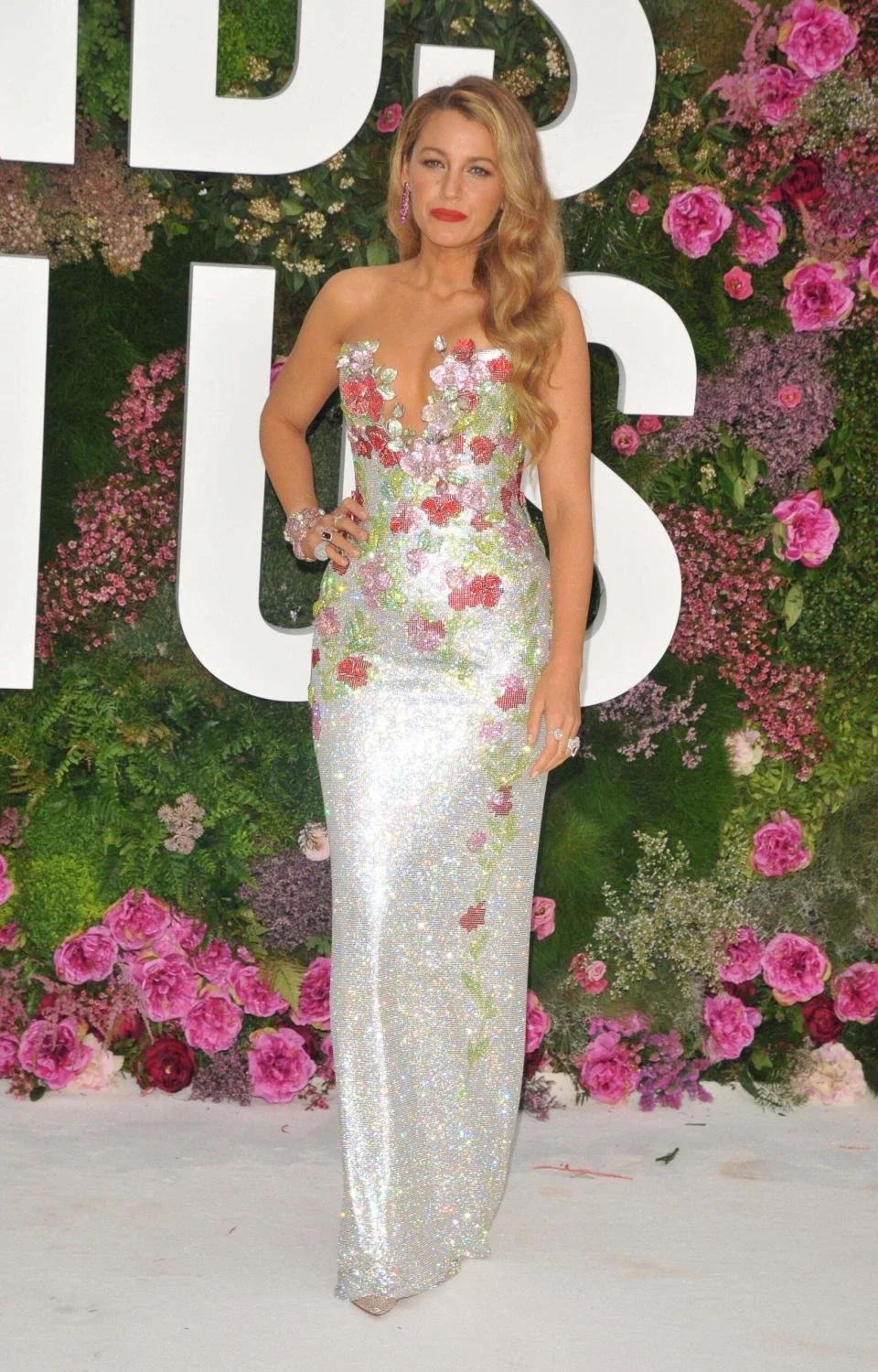The Justin Baldoni & Blake Lively Drama: Weaponized Feminism, Reputation Fixers & Why We Can't Look Away
I really didn’t want to talk about this because it doesn’t necessarily relate to our usual weekly discussions. But just because this drama is dominating media headlines and is so confusing, I wanted to do this quick refresher to get everybody on the same page. The constant back-and-forth between Justin Baldoni and Blake Lively has taken over every social media feed, and while it might seem like another case of Hollywood egos clashing, the issues at play are much deeper.
What Happened?
For those who haven’t been following every twist and turn, here’s a quick refresher:
Initial Disputes: Their collaboration on It Ends With Us, the film adaptation of Colleen Hoover’s bestselling book, quickly unraveled into accusations of contract violations and behind-the-scenes conflicts.
Allegations & Lawsuits: Blake’s PR firm sued him for alleged defamation, and Baldoni faced claims of misconduct. The film itself has also drawn criticism for how it approaches domestic violence, a central theme of the original novel.
Public Retaliation: Both have used media platforms and carefully crafted statements to shape the narrative in their favor, each portraying themselves as the victim.
The It Ends With Us book, which Hoover has stated was inspired by her mother’s experience with domestic violence, has been both praised and criticized for its portrayal of an abusive relationship and a woman’s struggle to leave it. The film adaptation was supposed to bring these conversations to a wider audience, but instead, it’s become a battleground for its lead stars.
Weaponizing Feminism for PR Gains
One of the most fascinating (and frustrating) aspects of this battle is how both parties have strategically invoked feminism to suit their narratives:
Baldoni’s Approach: He has long positioned himself as a progressive male ally, advocating for gender equity while also attempting to shield himself from criticism.
Lively’s Response: A champion of women’s empowerment, she has leveraged her influence to paint herself as a victim of institutional power plays.
The problem? When feminism is used as a PR shield rather than a genuine movement for equality, it muddies the waters for real discussions about workplace ethics, accountability, and gender dynamics. Adding fuel to the fire is the issue of an intimacy coordinator—or lack thereof. Reports have surfaced that Blake Lively didn’t feel comfortable on set due to the absence of clear guidelines and professionals ensuring safe filming conditions for intimate scenes, further complicating the narrative of power dynamics.
The Fixers & Spin Machines
Both Baldoni and Lively have enlisted top-tier publicists, crisis managers, and even legal strategists to steer the narrative. If you’ve ever watched Scandal, think of Olivia Pope—these “fixers” operate behind the scenes, carefully crafting statements, selectively leaking information, and ensuring that their clients come out looking like the hero rather than the villain.
This level of media manipulation reminds us that Hollywood isn’t just about storytelling—it’s about controlling the story being told about you. From carefully timed leaks to sympathetic press coverage, these power players are working overtime to frame their clients as the victim in this increasingly ugly war of words.
Parallels to Johnny Depp & Amber Heard
If this entire ordeal is giving you déjà vu, you’re not alone. The media circus surrounding Baldoni and Lively’s feud has strong echoes of the Johnny Depp vs. Amber Heard trial—another case where personal grievances exploded into a highly public legal battle. Much like that situation, public sentiment is split, and both sides are fighting to control the narrative.
The Depp-Heard trial gripped the headlines for months, forcing conversations about domestic abuse, defamation, and media influence. Given the trajectory of this dispute, it wouldn’t be surprising if Baldoni vs. Lively follows a similar path, dragging on for months with each side airing more grievances and the public picking apart every detail.
What’s the South Asian Connection?
While this scandal is Hollywood-centric, the themes resonate deeply within South Asian culture:
Reputation Management: South Asian communities place immense value on public perception, leading many to go to great lengths to control narratives—whether in Bollywood, politics, or even matchmaking circles. When it comes to divorce, the lengths people go to spin the story as a “no-fault” situation or “we tried everything” to avoid judgment from others is uncanny.
Gender & Power Dynamics: Just as Lively and Baldoni frame their disputes through the lens of feminism and accountability, similar tactics play out in South Asian spaces where gender roles, honor, and reputation are constantly negotiated. The modern generation is struggling to break free of traditional gender expectations while still balancing their masculine and feminine sides.
Fixers in Society: We don’t need Hollywood PR teams—we have aunties and the community to do the job for us. The phrase “log kya kahenge” (what will people say?) has been our guiding (or rather, limiting) principle for generations. Reputation management has been a forte of our community from the beginning of time, ensuring that no scandal or imperfection goes unpolished before being presented to society.
Why We’re Paying Attention
Despite the exhausting back-and-forth, this story remains compelling because it taps into larger issues: power, gender, media control, and the blurred lines between authenticity and performance. In a world where personal branding is everything, the Baldoni-Lively feud isn’t just a legal dispute—it’s a masterclass in reputation warfare.
What do you think? Are they both equally at fault? Is one playing the victim more than the other? And more importantly—why can’t we stop watching?
Let’s discuss! Drop your thoughts in the comments or join the conversation on Reddit, LinkedIn, or the podcast this week!




